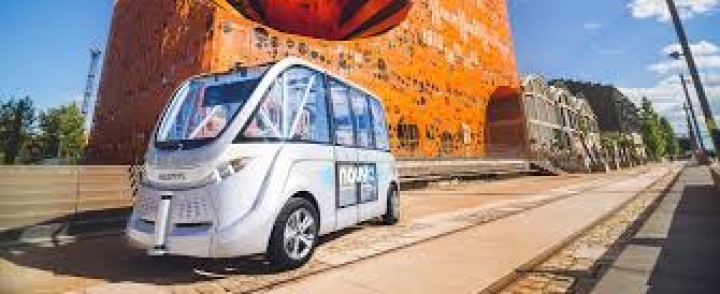CB Insights: Five companies working on driverless shuttles and buses
As an alternative to building fully autonomous passenger cars, a number of private companies are working to field self-driving electric shuttles and buses, CB Insights – an excellent source for investor news – reports.
Momentum in auto tech is at an all-time high, with investors funding private startups in the field at a record pace. Of course, much of the buzz has revolved around autonomous driving software, with startups like Zoox seeing $200M funding rounds, tech corporates looking to capitalize, and major automakers working feverishly to catch up.
Validating the reliability of fully autonomous vehicles will be no small feat, with RAND estimating that tens or hundreds of billions of test miles might have to be driven to properly gauge their safety. While many players are meeting this challenge head-on, a number of other startups are also developing autonomous tech for more focused applications.
Using the CB Insights company comparison tool, we compared five such private companies that are working to field different types of autonomous shuttles or buses.
These companies are working on a number of different concepts, but they are all running at least one program to develop a bus or shuttle with self-driving capability (and all but SB are building around electric powertrains).
Most are being designed to operate on predefined routes or geofenced locations, such as corporate or university campuses, or last mile travel between transport hubs and final destinations. These fenced environments should present a more surmountable hill than the challenge of open-world driving, reducing the number of extreme edge cases that they would have to account for.
Two of these companies hail from France, including Navya and EasyMile. Navya has developed a 15-person bus called Arma, which has already been deployed to a number of geofenced sites in France. The company counts key strategic backers from auto supplier Valeo to French transport giant Keolis. Navya has pushed abroad as well, partnering with Las Vegas to launch a free pilot of its bus during CES 2017, also launching its first US office in March 2017 (located in Chicago).
EasyMile, a joint venture between France’s Ligier and Robosoft, has also fielded its EZ10 bus, designed to travel along “virtual lines” that it can repeat continually. The company’s California tests may be the first self-driving trials in the state without a steering wheel or human operator.
SB Drive is Japanese conglomerate SoftBank’s self-driving bus project, a joint venture established with Advanced Smart Mobility. SoftBank remains the majority owner, but Yahoo Japan recently joined the initiative with a $4.4M minority stake, planning to link SB Drive with its Yahoo Maps service and data. (SoftBank’s expanding mobility portfolio also includes significant investments in Asian transportation network companies).
Auro Robotics is a California-based company offering its electric campus shuttles through a mobility-as-a-service model. Its subscription pricing includes insurance and liability coverage for the vehicles, as well as maintenance.
Finally, Local Motors is an Airbus Ventures-backed outfit working on a bus named Olli (among other projects). Much like its peers, Olli is an electric shuttle designed to move students around campuses or plug gaps in urban transit networks. However, Local Motors is manufacturing the bodies for Olli vehicles using their unique 3D-printing process. Its bus is also the first vehicular application of IBM’s Watson cognitive learning platform.
(Another former shuttle company, the YC-backed Varden labs, is now developing self-driving trucks as Embark.)
Read more (including the CB Insights comparison including market data):
https://www.cbinsights.com/blog/driverless-shuttle-companies/?utm_source=CB+Insights+Newsletter&utm_campaign=40961032ad-MonNL_4_3_2017&utm_medium=email&utm_term=0_9dc0513989-40961032ad-87434469
- CB Insights: Five companies working on driverless shuttles and buses



